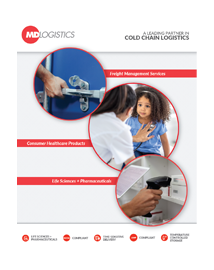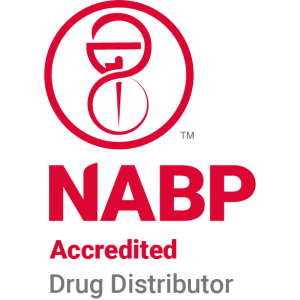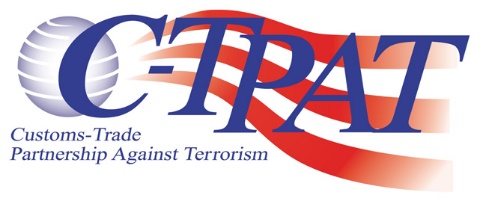
In the era of e-commerce and slowing retail sales, can your product’s packaging still provide adequate value to millennials?
Let’s face it – millennials (or members of Generation Y) are often considered a new era of mankind, and there are many reasons for this. With constant technological influences, millennials have close to infinite resources within their grasp. Instant access to information, images, video and media means they can find almost everything online, without needing to leave the house. This has greatly changed the retail industry with the average millennial spending an hour shopping online per day. This not only means the consumers in this generation are shopping more frequently, but they also have greater comparative abilities, since access to most stores are at their fingertips.
What does this mean for your company’s product packaging? Seldom do we see packaging displayed with the product when shopping online. Does this mean your product’s packaging is no longer an important consideration increasing your product’s value?
The answer is both yes and no; here’s why:
Yes, because unboxing videos can influence your sales
While most products displayed online focus on the product itself, there are some very successful subscription box programs heavily dependent on it packaging presentation to increase its value. ‘Unboxing’ videos on YouTube also became a trend (and its own genre) starting from 2014. These videos aim to show customers how the product arrives in the mail and the packaging materials used, highlighting the entire customer experience after receiving and opening up their newly purchased products.
Viewers (many of which are millennials) claim that watching unboxing videos can provide the same feeling as opening gifts on Christmas Day, without having the spend the money. If you’ve glanced through YouTube comments on most unboxing videos, you will definitely have noticed that there is never any shortage of trolls and overly-harsh critics. This only raises the necessary standards of providing appropriate and high-quality packaging for your products. You can be sure that if you cheap out on your packaging, your product’s image and value will be slammed by the internet.
Yes, because products sold on shelves need to stand out
Retail product packaging is and will always be significant as long as items are sold physically on shelves. As mentioned earlier, millennials have instant access to data and information. They are generally more aware of what products exist in the market and what they are looking for when shopping in stores. Unless you have a significant advantage in one way or another, the sales of your products will suffer if your packaging does not stand out. POP (point of purchase) displats and floor displays have become more popular to help a line of products stand out from the crowd. In Asia, boxes and containers often have stickers on them to pop out more and present even more value propositions.
Yes, because higher end, greater involvement purchases need to live up to their hype
You should invest in a thoughtful package design for your product to meet the standards consumers hold it to. Branded plastic or paper bags can be used for clothing, while non-malleable items should be packaged in protective and attractive boxes. I often mention Apple’s packaging, consisting of mainly telescopic rigid boxes (lid and tray), which provides adequate protection to the product and is also able to withstand a beating of its own. A tattered Apple box would instantly, from shipping or mishandling, reduce the value of Apple’s prestigious products, causing cognitive dissonance and potentially buyer’s remorse. By packaging their products in very sturdy packaging, Apply can be confident that buyers will be satisfied with their purchase and that their presentation lives up to their value offerings.
Whether purchases are done at a physical location or online, packaging will always play a role in the customer experience. While lower-priced discount items may be able to get away with minimal packaging, millennials (and most consumers) will feel dissatisfied if their higher-end purchases come with out adequate packaging.
No, because lower priced clothing retailers or deal websites can get away with minimal packaging
Millennials (and most customers) that purchase products at pricing well below market price will usually lower their expectations and expect the trade-off of less, or no, packaging. These ‘deal-hunter’ types of customers generally prioritize the discount and overall value more than the presentation and understand that professionally branded packaging would act to increase their costs.
Lower-priced clothing manufacturers such as Forever 21 ship their clothing in a plain (but branded) kraft box or mailer, with each clothing item bagged in clear plastic. Companies that focus on minimizing their packaging use cal often also promote their leadership in corporate social responsibility. Customers understand and appreciate actions that benefit the environment, as long as this is communicated to them. Keep in mind, it may be cool to be environmentally friendly, but possible damaged items as a result will only harm a company’s image and sales figures.
Most millennials are very value-driven and are quick to compare items purchased within the global market. Value is often defined by standards and expectations. If the competition provides high-end packaging and your product is similarly priced, you can bet that the customer expects the same (or better) quality packaging from your product. Do yourself a favor – if you’re going to minimalize your packaging, make sure your customers understand how and why this benefits them.
While online marketing and promotions usually feature actual products more than it’s packaging, remember that unboxing videos, comments and customer reviews can make or break your brand image and e-commerce sales numbers. Well branded, customer packaging will always be appreciated by consumers, and you can be sure that thoughtful packaging will always improve your product’s perceived value.
Source: business.com



